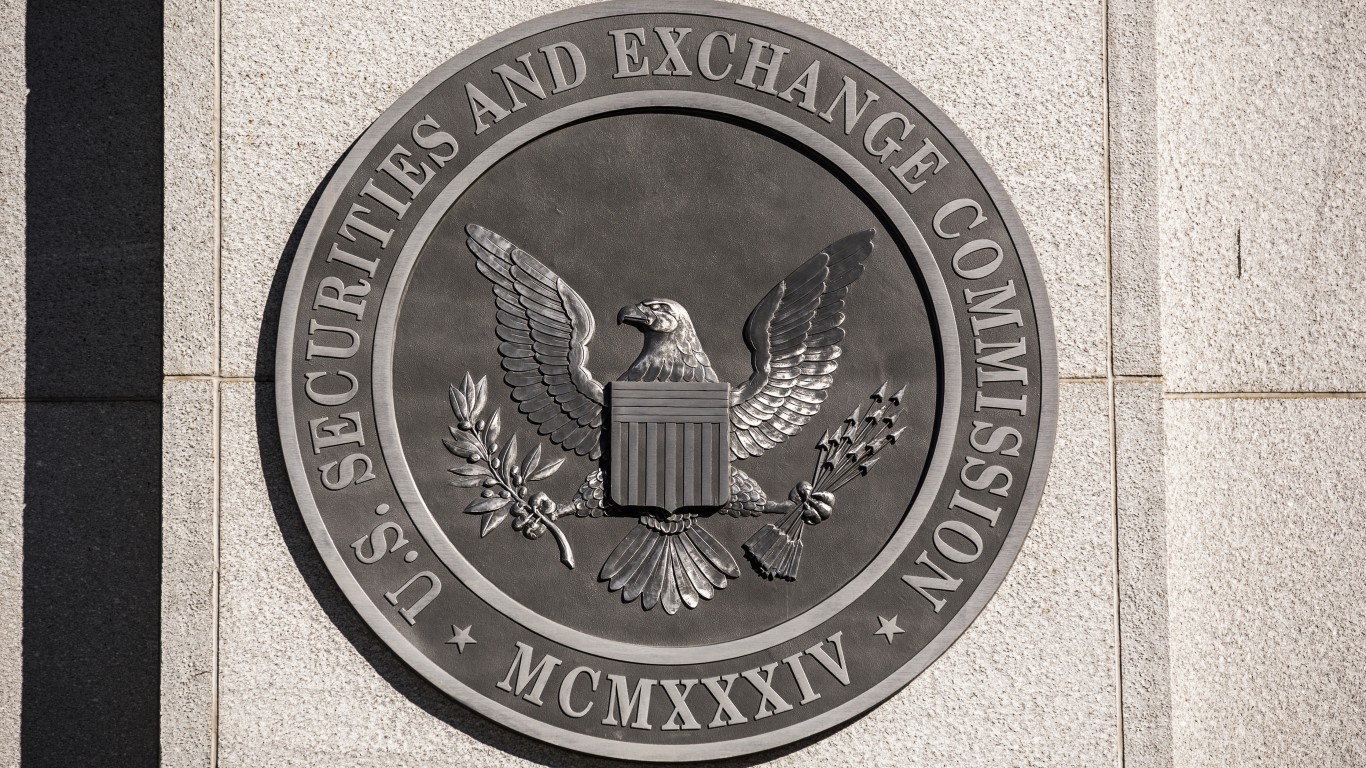
In a press release issued Tuesday morning, the U.S. Securities and Exchange Commission (SEC) charged FTX crypto exchange founder and CEO Sam Bankman-Fried with fraud and said it is continuing its investigation into other violations of securities law and into “alleged misconduct” at companies related to FTX.
[in-text-ad]
SBF, as Bankman-Fried has come to be known, was arrested Monday in the Bahamas at the request of Damian Williams, the U.S. attorney for the Southern District of New York. In a tweet Monday afternoon, Williams also said that his office would “move to unseal” the indictment upon which the Bahamian authorities made the arrest. As of 6:30 a.m. Tuesday morning, the indictment remains sealed.
USA Damian Williams: Earlier this evening, Bahamian authorities arrested Samuel Bankman-Fried at the request of the U.S. Government, based on a sealed indictment filed by the SDNY. We expect to move to unseal the indictment in the morning and will have more to say at that time.
— US Attorney SDNY (@SDNYnews) December 12, 2022
What Williams could say Tuesday morning is that he has requested Bahamian authorities to extradite SBF. If such a request is made, it is highly likely that Bankman-Fried will be on his way to New York on the first available flight.
In its press release, the SEC said that SBF “orchestrated a years-long fraud” for the purpose of hiding his activities from investors. These activities included:
(1) the undisclosed diversion of FTX customers’ funds to Alameda Research LLC, his privately-held crypto hedge fund;
(2) the undisclosed special treatment afforded to Alameda on the FTX platform, including providing Alameda with a virtually unlimited “line of credit” funded by the platform’s customers and exempting Alameda from certain key FTX risk mitigation measures; and
(3) undisclosed risk stemming from FTX’s exposure to Alameda’s significant holdings of overvalued, illiquid assets such as FTX-affiliated tokens.
The complaint also alleges that SBF “commingled” FTX’s customers’ funds at Alameda Research, a hedge fund that SBF also controlled, “to make undisclosed venture investments, lavish real estate purchases, and large political donations.”
SEC Chair Gary Gensler commented:
We allege that Sam Bankman-Fried built a house of cards on a foundation of deception while telling investors that it was one of the safest buildings in crypto. The alleged fraud committed by Mr. Bankman-Fried is a clarion call to crypto platforms that they need to come into compliance with our laws. … It also shines a light into trading platform conduct for both investors through disclosure and regulators through examination authority. To those platforms that don’t comply with our securities laws, the SEC’s Enforcement Division is ready to take action.
While the SEC has yet to issue any regulations governing crypto assets, the complaint against SBF is based on the anti-fraud provisions of the Securities Act of 1933 and the Securities Exchange Act of 1934. The inference we might draw from this is that Gensler and the SEC are treating crypto assets as if they were securities, as least insofar as crypto runs afoul of anti-fraud laws.
That may be arguable. Writing in the Financial Times last month, Stephen Cecchetti of Brandeis and Kim Shoenholtz of NYU, argued that, rather than regulating digital assets, “It is far better to do nothing, and just let crypto burn.”
Actively intervening would convey undeserved legitimacy upon a system that does little to support real economic activity. It also would provide an official seal of approval to a system that currently poses no threat to financial stability and would lead to calls for public bailouts when crypto inevitably erupts again.
ALSO READ: Rates Head Higher Again This Week: 5 Value Stocks to Buy Now That Come With Big Dividends
The Financial Industry Regulatory Authority (FINRA) started a “target exam” of how crypto asset firms communicate to retail customers. In a footnote, FINRA defines its terms:
‘Crypto Asset’ means an asset that is issued or transferred using distributed ledger or blockchain technology, including, but not limited to, so-called ‘virtual currencies,’ ‘coins,’ and ‘tokens.’ A Crypto Asset may or may not meet the definition of a ‘security’ under the federal securities laws, provided, however, that the term ‘Crypto Asset’ shall not include a security registered under the Securities Act and transferred through the system of a registered clearing agency.
The U.S. Commodities Futures Trading Commission (CFTC) also has claimed oversight on crypto trading, and the SEC’s press release said that the CFTC also announced charges against SBF Tuesday morning. There is no announcement yet on the CFTC website.
The Average American Has No Idea How Much Money You Can Make Today (Sponsor)
The last few years made people forget how much banks and CD’s can pay. Meanwhile, interest rates have spiked and many can afford to pay you much more, but most are keeping yields low and hoping you won’t notice.
But there is good news. To win qualified customers, some accounts are paying almost 10x the national average! That’s an incredible way to keep your money safe and earn more at the same time. Our top pick for high yield savings accounts includes other benefits as well. You can earn up to 3.80% with a Checking & Savings Account today Sign up and get up to $300 with direct deposit. No account fees. FDIC Insured.
Click here to see how much more you could be earning on your savings today. It takes just a few minutes to open an account to make your money work for you.
Our top pick for high yield savings accounts includes other benefits as well. You can earn up to 4.00% with a Checking & Savings Account from Sofi. Sign up and get up to $300 with direct deposit. No account fees. FDIC Insured.
Thank you for reading! Have some feedback for us?
Contact the 24/7 Wall St. editorial team.



